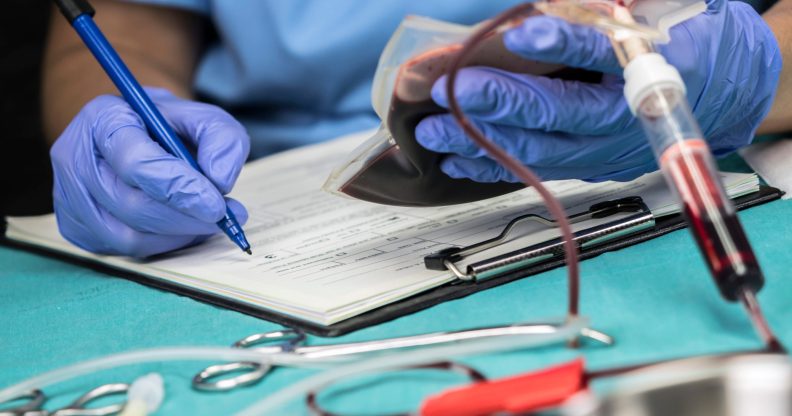Australia set to to relax blood donation rules for queer men. But, unsurprisingly, there’s still a major problem

(Stock photograph via Elements Envato)
Men who have sex with men in Australia could soon be able to donate blood after being celibate for just three months, as blood donation rules are set to be relaxed amid global shortages.
Following an expert review, the Australian Red Cross blood donation service, Lifeblood, announced that gay and bisexual men would now be barred from giving blood for three months after having sex, rather than 12.
The Lifeblood proposal, which will now be considered by each Australian state and could become law before the end of this year, does not include people taking HIV prevention drug PrEP, who must still be celibate for 12 months before being allowed to donate blood.
Lifeblood said: “Deferral policies are regularly reviewed and are underpinned by the most up-to-date clinical and scientific evidence, so that Australia maintains one of the safest blood supplies in the world.
“Lifeblood would like to make it easier for all Australians to give blood, while ensuring Australia’s blood and blood products are as safe as possible for recipients.”
Unsurprisingly, LGBT+ advocates in the country say that this isn’t enough – and that the rule barring gay and bisexual men from giving blood is based on an outdated understanding of HIV transmission and steeped in stigma.
They urged the Red Cross and the government to screen blood donors based on the safety of their sexual behaviour, rather than the gender of their sexual partners.
“The new deferral will not significantly increase the amount of safe blood available for transfusion,” said Rodney Croome from just.equal, an Australian LGBT+ group.
“At a time of crisis when blood shortages are looming, it is vital that all Australians not at risk of passing on blood-borne diseases are able to donate, including those gay men who are not at risk.
“We urge the TGA and the Red Cross Lifeblood service to adopt a new policy of screening all donors for the safety of their sexual activity rather than the gender of their sexual partner.”
Australia banned gay and bisexual men from donating blood following the 1980s AIDS crisis.
In 2000, this was relaxed and men who have sex with men were allowed to donate blood once they had been celibate for 12 months.
“Imposing a celibacy period on all sexually-active gay men before donating blood is a hangover from the 1980s,” Croome said.
“HIV transmission was less well understood, tests for the virus were less reliable and being gay was synonymous with having AIDS.
“Those days are long-gone and our blood screening policy should be updated accordingly.”
The decision in Australia follows an almost identical one in the US, which also reduced its ban on gay and bisexual men giving blood from 12 to three months in the face of the coronavirus pandemic.
Blood banks all over the world have been facing shortages due to the coronavirus pandemic, yet in both the US and the UK gay and bisexual men are still unable to donate if they are sexually active.

